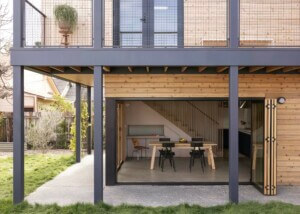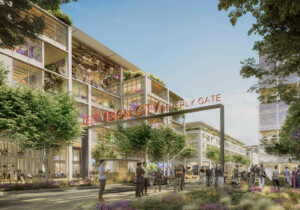With Minneapolis, San Francisco, San Diego, and Los Angeles moving forward with progressive land-use and transportation reforms last week, much of the conventional thinking behind how American cities work could soon be upended.
As the converging threats of climate change, housing unaffordability, and pollution continue to hamstring the country’s urban areas, cities across the country are taking matters into their own hands by enacting bold but common-sense reforms in the face of federal and state inaction.
For one, a groundbreaking comprehensive plan update in Minneapolis that would eliminate the city’s single-family zones took a step forward last week after two years of public debate and negotiations.
The so-called 2040 Minneapolis Plan would make the city the first in the country to upzone all of its single-family residential neighborhoods to allow up to three dwelling units per lot. Under the 2040 initiative, the city will be able to re-establish a tradition of building what’s known as “missing middle” housing, the types of naturally affordable small- to medium-scale neighborhoods that make up the backbones of most American cities built before the 1950s. The plan is designed to break down racial and income disparities between neighborhoods in the city while allowing Minneapolis to absorb expected job and population growth over coming decades. Housing activists across the country are now looking to Minneapolis to see how the experiment plays out as efforts to enact similar policies pick up across the country, especially in Seattle, where a similar effort is gaining steam. In Oregon, a plan to eradicate single-family zoning in cities with 10,000 or more residents took a step forward this week.
Aside from taking on exclusionary zoning, other cities, including Buffalo, San Francisco, and San Diego, are looking to eliminate off-street parking requirements to varying extents as they work to reclaim the enormous amount of space taken up by parked cars.
In 2017, Buffalo became the first municipality in the country to totally eliminate parking requirements city-wide. The effort comes as part of a new zoning initiative that will bring what is known as a “form-based code” (FBC) to the city. As the name implies, FBCs typically regulate the overall geometries of urban areas by setting particular height limits, setbacks, and other design guidelines that can be followed regardless of use. The approach runs counter to more common use-based codes that carve cities up into monofunctional areas with residential, industrial, and commercial districts. FBCs are seen both as a way of re-establishing mixed-use neighborhoods while also creating contextual and preservation-friendly zones.

With the update, Buffalo joins Denver, Las Vegas, and Miami, which have also recently enacted FBCs.
Over in California, as the state’s new legislature takes up a series of bold housing reforms, San Diego Mayor Kevin Falconer is one step ahead with a proposal to scrap parking requirements for transit-adjacent areas. A new proposal would eliminate required parking for housing located within 1/2-mile from a transit stop, a change similar to a state-wide effort that was derailed last year. The latest effort, according to the mayor, will be geared toward lowering the cost of building housing—a single parking stall adds between $35,000 and $90,000 in costs per unit of housing in the state—while also resulting in shorter and less bulky buildings.
San Francisco has taken the proposal one step further by moving to become the largest city in the country to scrap parking requirements outright. City Supervisor Jane Kim put forward a measure this month to totally eliminate the requirement city-wide in an effort to bolster the city’s climate bona fides and help reign in housing costs. But don’t call it a “parking ban,” developers will instead be allowed to build parking up to a maximum threshold if they deem it necessary. The yet-to-be-approved initiative could go into effect next year.
Nearby, Sacramento is working to enact a city-wide transit-oriented development plan that would limit drive-through restaurants and gas stations and lower parking requirements within 1/2-mile from transit stops in the city.
Change is afoot even in car-loving Los Angeles, where an ambitious but currently under-funded plan to build 28 large scale transit projects by the 2028 Olympic games has prompted local officials to consider so-called “congestion pricing.” No official plan has been unveiled, but the Los Angeles Metro CEO Phil Washington last week presented several ideas that could potentially fill the funding gap, including requiring drivers to pay for traveling in some of the city’s most congested areas. To boot, Curbed reported that during a presentation to the Metro Board of Directors, Washington even proposed using the fees generated from congestion pricing to make Los Angeles the first city in the United States to offer free public transportation every day of the year.











